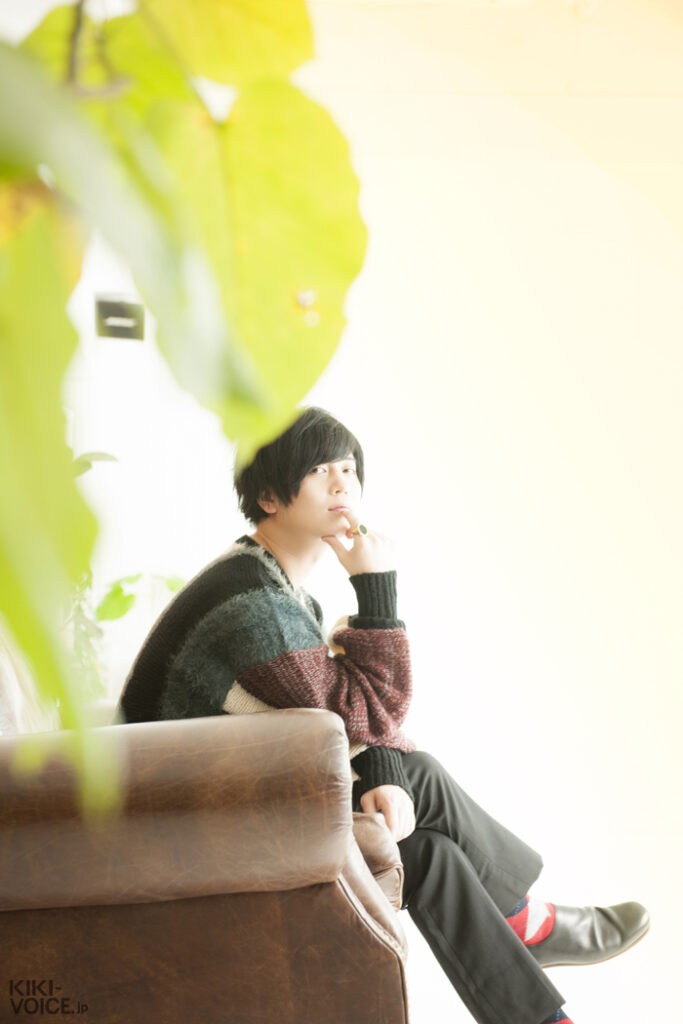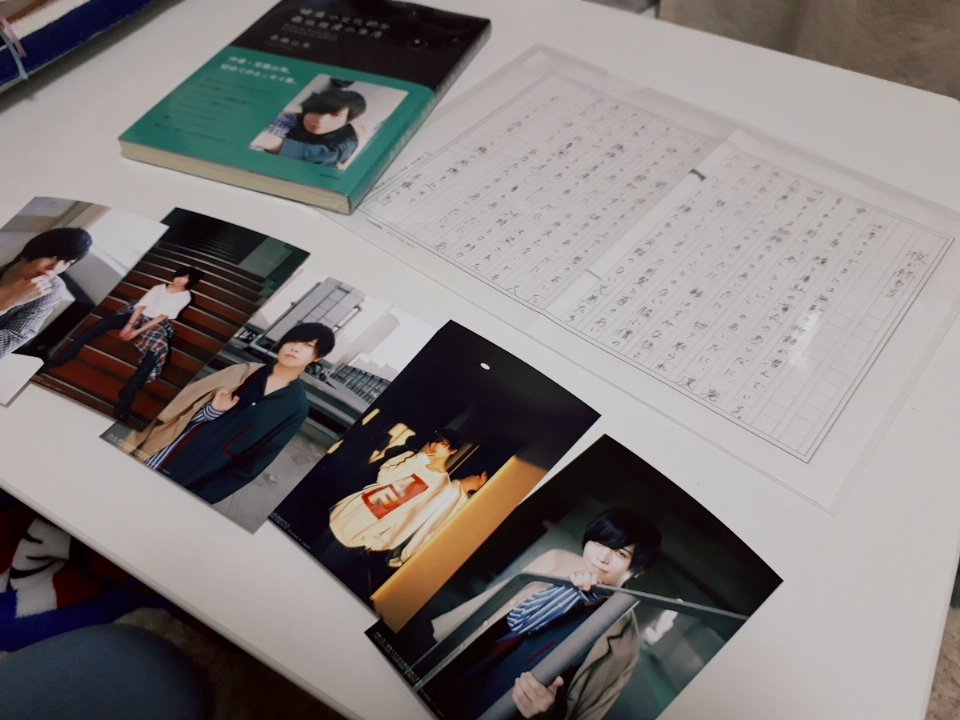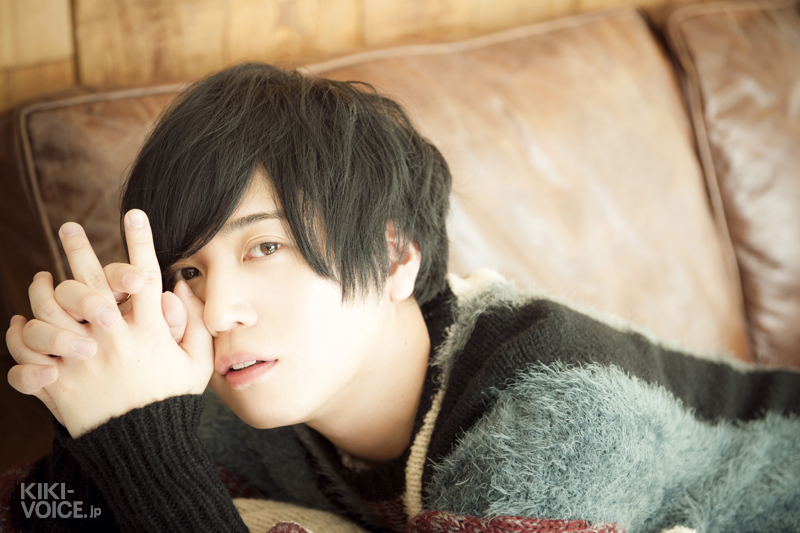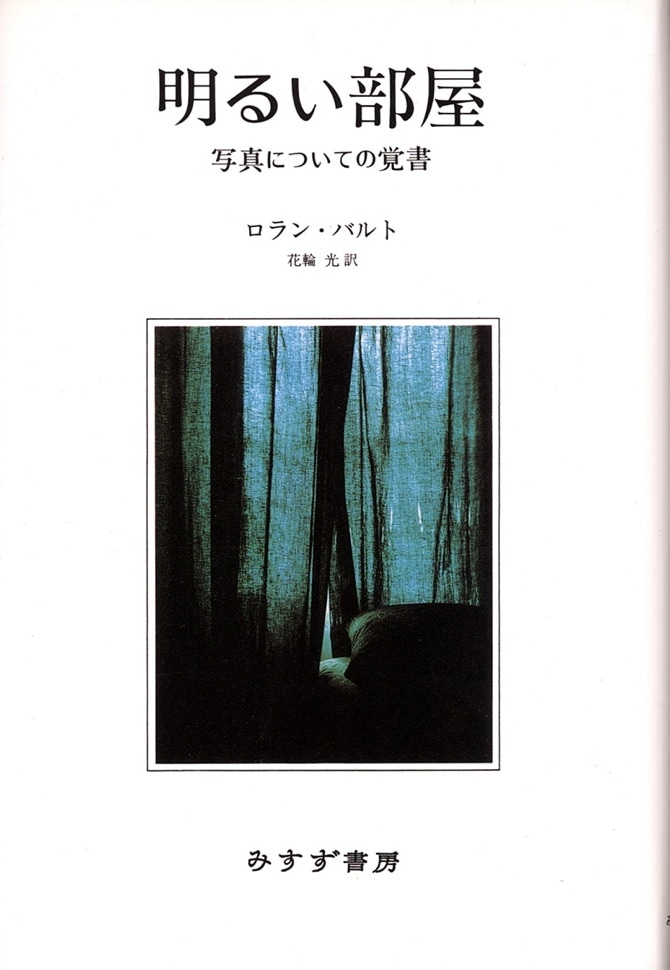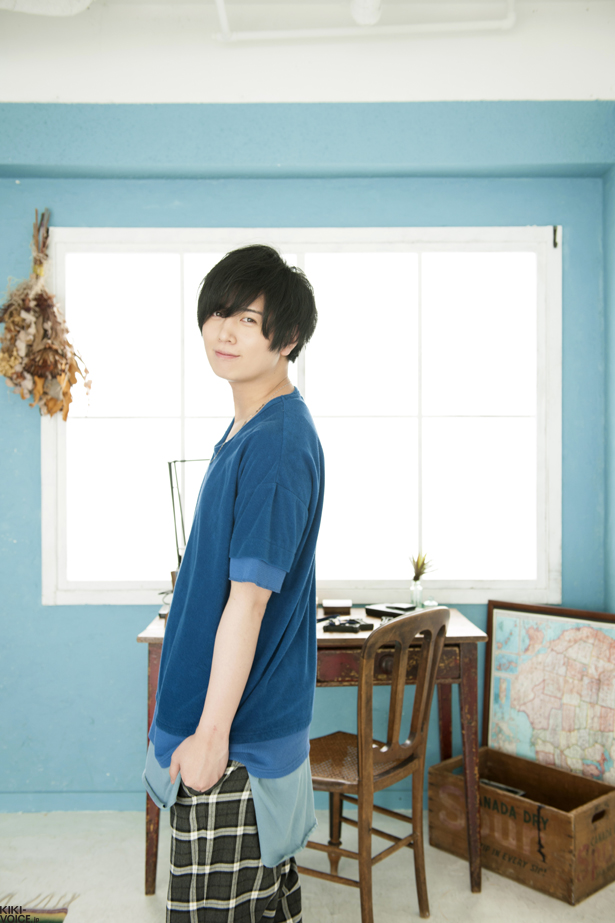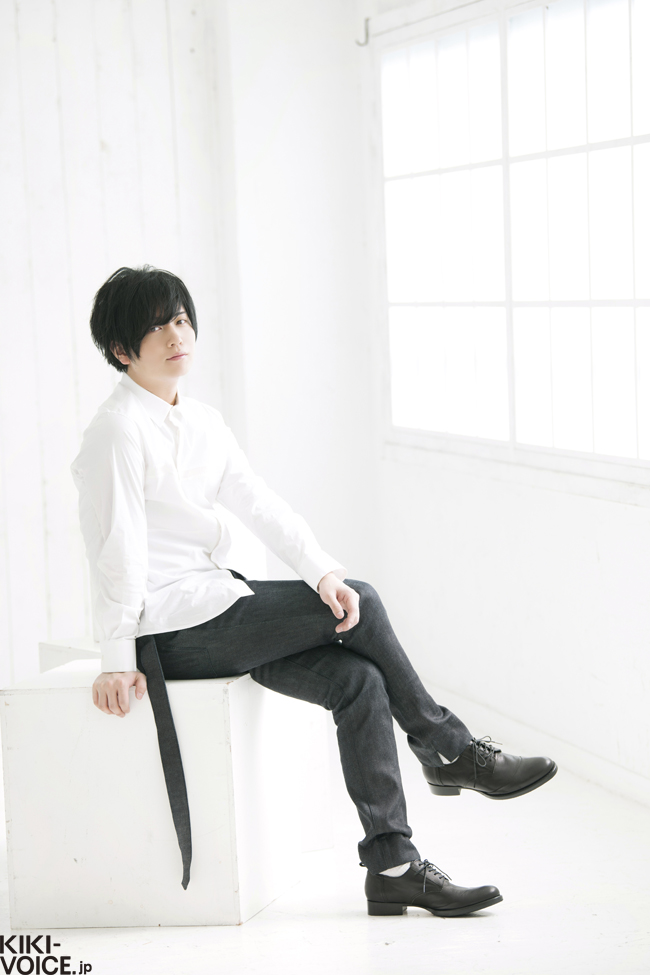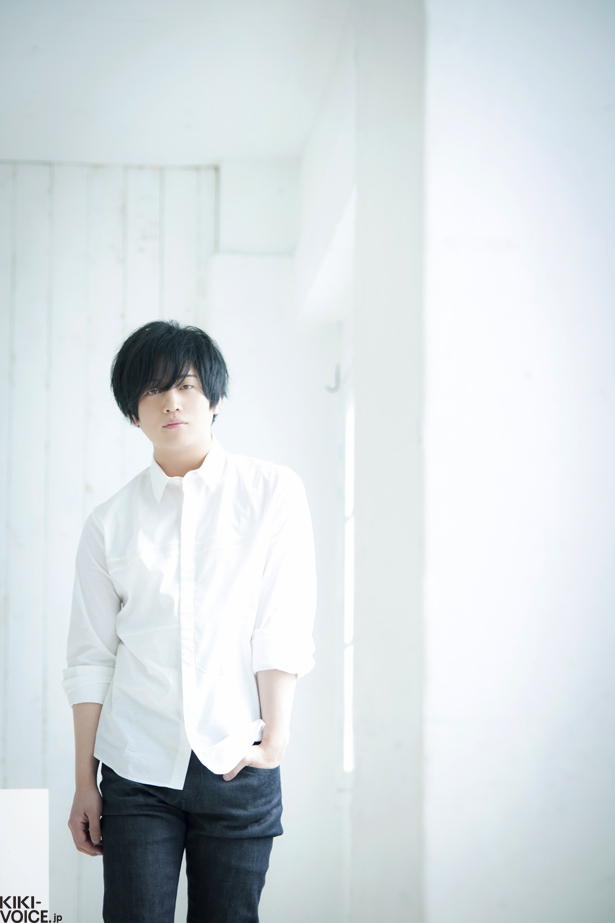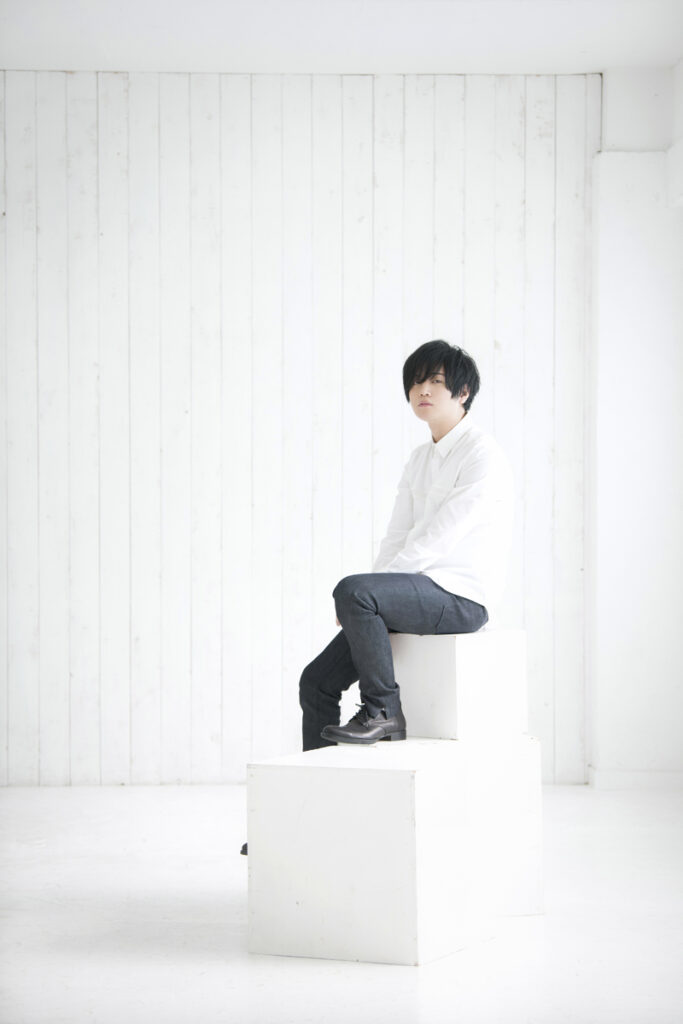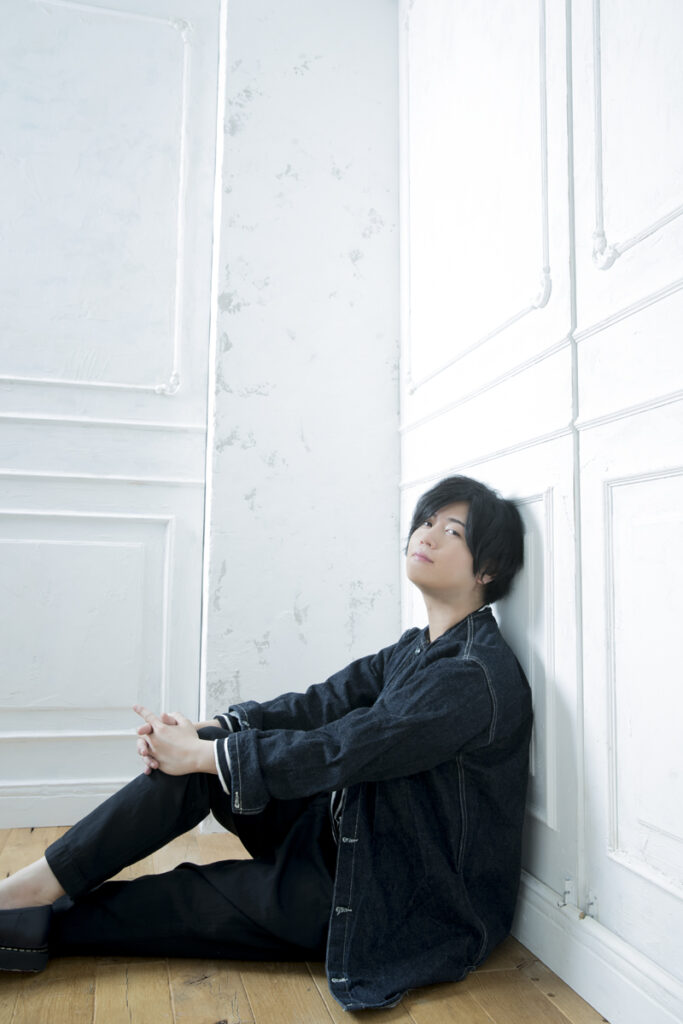(no scans because it’s still a recent release)
Released: 2021/2/24
Features:
Saito Soma
Nakao Ryusei
※Part 2 of the discussion with Nakao Ryusei.
Saito Soma and his respected former teacher discuss “Voice Actor Training School” (Part 2)
—Why did Nakao-san start teaching at a training school?
Nakao: I actually didn’t want to be a teacher *laughs*. At first, it was a study group. They told me to “look after the youngsters” and I thought, “I’m not old enough to be doing that!” I was just under 30 at the time.
Saito: I’m 29, so for you to be asked that at around this age… Wow!
Nakao: The number of people in the study group grew, and they decided to turn it into a proper training school. In the early days, I’d even get questions like, “I have an audition tomorrow; how should I read this?”…
Saito: Whoa!
Nakao: I learned acting through self-study, so it was embarrassing to be called “Sensei,” to the point where I felt bad about it. But I think that when you’re teaching people something, it shouldn’t be what you digested and applied for yourself. When I became a lecturer, I started reading books about acting. The content was complicated, but I realized that it was all things I’d already been doing.
Saito: That’s amazing.
Nakao: The best part was studying with trainees who had much better sensibilities than me. It was stimulating and educational because we had completely different perspectives.
—In the past, voice acting training schools didn’t exist to begin with, after all.
Nakao: Yes, in a way, it’s good to be taught. But things that are simply taught are also simply forgotten. Besides, nowadays you can easily look up answers on your phone, although whether that’s a good thing or a bad thing depends on the person. Back in my day, we would go all the way to the National Diet Library to research things. No one would teach us, so we often embarrassed ourselves at work. At training school, we teach various things so that students can avoid that situation, but in the end, you learn more from actually doing the job.
Saito: Without experience, you slip up. Even if you know in your head what to do, it doesn’t manifest at the recording unless you’ve fully grasped it.
Nakao: In these thirty-plus years, 81 Produce’s training school went from a three-year format to two, then one. Instead of leisurely studying the art, people want to become an immediate asset. The trainees are so serious that I wish I could tell them that they don’t have to stress so much about it. After all, I didn’t take acting that seriously in my life.
Saito: In my class, there were a lot of people who were truly amazing, and I was grateful to be able to study with them. Their personalities were diverse, but I think a lot of them were hungry for knowledge and progression.
Nakao: Your class really was diverse.
Saito: At the time, I was the type to think through everything, so I was extremely scared of making mistakes.
Nakao: There are people like you, and there are people who don’t plan anything. With the latter, I enjoy seeing what they’ll show in the future. There’s no correct answer, after all.
Saito: Thinking about it now, back then I was overly complacent with my knowledge and assumptions.
Nakao: You were quick to evolve when you were told to do a retake. Conversely, it means that you were too serious. At times like that, seniors tend to say “Go wild with it!”, but then it becomes, “What’s that supposed to mean?”
Saito: I really wondered that *laughs*. Actually, I probably still don’t know for sure what it means…
Nakao: They’re just trying to say, “Don’t conform to the norm.” The idea is that if you’re given the number “10” and you give a compact formula like “5 x 2”, they’re telling you to instead answer with something like “10000 – 9990.” But that way of thinking isn’t really something you can just do. In fact, people who always give answers like that get told, “Come up with a normal formula!” *laughs*
Saito: Since people start with their own values as the baseline, everyone has unique traits. But Nakao-san, you give off the impression that you’ll accept any approach people take.
Nakao: That’s the only way we can phrase it. But I knew that everyone in your class was thinking deeply in their own ways, so I didn’t say much. The only thing we can teach you is formulaic approaches. We just want you to be more versatile.
Saito: I don’t think the focus of the lessons was on techniques—you taught us more fundamental things. It felt like you were saying, “If that’s the method you choose, then explore it thoroughly.” There’s logical thinking vs. acting through feeling, and you didn’t guide us towards one approach over the other. I’m really thankful for that now. At training school, I got stuck a lot while thinking things through, but before long, I started thinking, “Dialogues are really fun!” I feel like I’m leaning more towards the “feeling” side as the years go by. As I walk the path of an actor, the way I perceive the world continues to change. At training school, I learned how to get started with the fascination of voice acting.
Nakao: I’m glad to hear that. It’s just that it’s hard for trainees to think of it that way, because everyone is in a rush to become pros. Knowing that, I say these things in hope that the meaning will reach them someday in the future. I also teach them, “It’s okay if you don’t have a sense for it.” If you don’t, then you can succeed by being aware of the fact that you don’t.
Saito: You also said, “There’s nothing you can do about how nice everyone else’s voices are.”
Nakao: Even a weird voice like mine is fine, after all.
Saito: What are you saying *laughs*. You taught us that it’s good to look at things from different angles and perspectives.
—Can the teachers tell which trainees are improving?
Nakao: We don’t expect them to be skilled when they’re still in training school, but as we’re teaching, we can sense which ones are probably going to be ready to work soon.
Saito: How can you tell?
Nakao: It’s their acting spirit—whether they’re geared towards acting and creating as a group. With animation dubbing, once you’ve done it three times, you can match up with anyone. So the people who move on to become voice actors are those who can do the acting properly.
Saito: The way I think of it is that when you’re performing a dialogue, it feels like your brains are connected.
Nakao: It’s like playing catch.
Saito: For me, what’s important when acting is essentially the “conversation” aspect, with the other actors, the story, and myself. It’s exactly like how we’re talking right now. Instead of deciding everything in advance, taking in what’s said and reacting to it. It’s something you do without thinking, but actors who really enjoy it have radiant acting that draws you in.
Nakao: I think everyone has desires, like wanting to be famous or make money. But there are a lot of things you can accomplish even if you don’t achieve those. Just because you aren’t famous or you don’t make a lot of money doesn’t mean you aren’t a good actor. Although, I can only say this because of my age—young people might not be able to think this way. When I was your age, Soma, I was hopelessly cocky. And I thought, “Will I be able to do better acting when I’m 30?”…
Saito: …I also vaguely assumed that something will change when I turn 30. *laughs*
Nakao: When I turned 30, I thought, “I guess it’s not enough, maybe it has to be 40.” When I turned 50, I thought, “Hmm, maybe it’s 60.” This year I finally turned 70, and all I can think is, “Huh, I always sucked.” But even though I sucked, I still made it this far. When I was young, I was obsessed with getting better.
Saito: Being reckless in your own way, thinking, “I think I just grasped something,” only to become unsure the next moment…
Nakao: It’s an endless repeat of that process.
Saito: Even though I didn’t fully understand what I was taught at training school at the time, as I’m working, there are times when I realize, “So this is what they meant.” One example is your story about the time when you were busy with both work and personal matters. You were standing in front of the mic, and once you thought, “This isn’t the right state of mind for acting,” you were easily able to give a good performance. I also had a time when I got stuck because I was thinking too hard, and I thought, “I don’t get it! I’m going to clear away the jumbled mess in my mind for a second!”, and it felt like my field of vision opened up a bit. I immediately understood what you told us back then.
Nakao: The hardest thing for rookie voice actors to learn on the job is mic work (switching in and out with other voice actors due to the limited number of mics). Right now, due to COVID-19, everyone has their own mic… but I think rookies will have a hard time with it when the pandemic is over.
Saito: Even I’m not sure if I’ll be able to do it anymore…
Nakao: You’ll be just fine *laughs*. A long time ago, a rookie voice actor was gently instructed by his senior, “Come over here.” The rookie answered, “I’m fine right here,” and the senior scolded him, “If you stay there, the mic rotation won’t work!” Rookies should listen to what their seniors say.
Saito: Speaking of what happens at the studio, there’s one thing I want to tell you here, Ryusei-san.
Nakao: What is it? *laughs*
Saito: You taught us that, “At the studio, rookies sit close to the door and open/close it during breaks,” and I put that into practice. Then, much later, when I had the opportunity to work with you again, I was all motivated to sit next to the door… but when I arrived, you were already sitting in the chair closest to the door.
Nakao: I’m really sorry *laughs*. I’ve always been timid, so I feel the most relaxed next to the door. And I get scolded by the rookies, who say, “There’s nowhere for us to sit now.”
Saito: It made me anxious, like “Huh?!” *laughs* I’m obviously joking, but I really do feel nervous when we’re at the same recording. But like you said at training school, “If we meet at the recording studio…”
Nakao: “We’re already fellow actors.”
Saito: When I greeted you, you said, “Oh, we got to meet at work!” I was happy that you remembered me.
Nakao: I’m glad to run into trainees at work. But I’m the most nervous of all—I don’t want them to think, “What? He’s nothing special after all.”
Saito: We absolutely won’t think that!
—Please give some advice for those who want to become voice actors.
Saito: I’m in no position to be giving advice, but…
Nakao: Nowadays, people are joining the training school because they want to be like you! Don’t run away. *laughs*
Saito: Sorry *laughs*. It reminds me of when I was a teenager. I was extremely cynical back then. I couldn’t really play with everyone at school festivals or hang out after school. I think that’s one of the reasons why I’m addicted to voice acting now. I can go back to being a high schooler over and over.
Nakao: I see. *laughs*
Saito: My humble opinion is that it’s definitely better to be honest and enjoy yourself right now.
Nakao: I completely agree.
Saito: The world is in a tough place right now, so I can’t say anything irresponsible, but I believe that everything you feel and experience right now in this moment will become your assets. For me, it hurts to remember my cynical days, but when I encounter a character like that, I can make use of my experiences.
Nakao: Fully take in what you’re feeling right now and enjoy the present. It’ll benefit you in the future no matter what your profession is.
Saito: Lastly, I have a brazen request… I want to do a reading with you, Ryusei-san.
Nakao: Of course! I’ve been telling everyone, “Play the main role, and invite me as a guest.” If I can appear once on everyone’s programs, I’ll have a peaceful life in old age. *laughs*
Saito: Wow! *laughs* I’ll strive towards being able to work with you again! Thank you very much for today.
